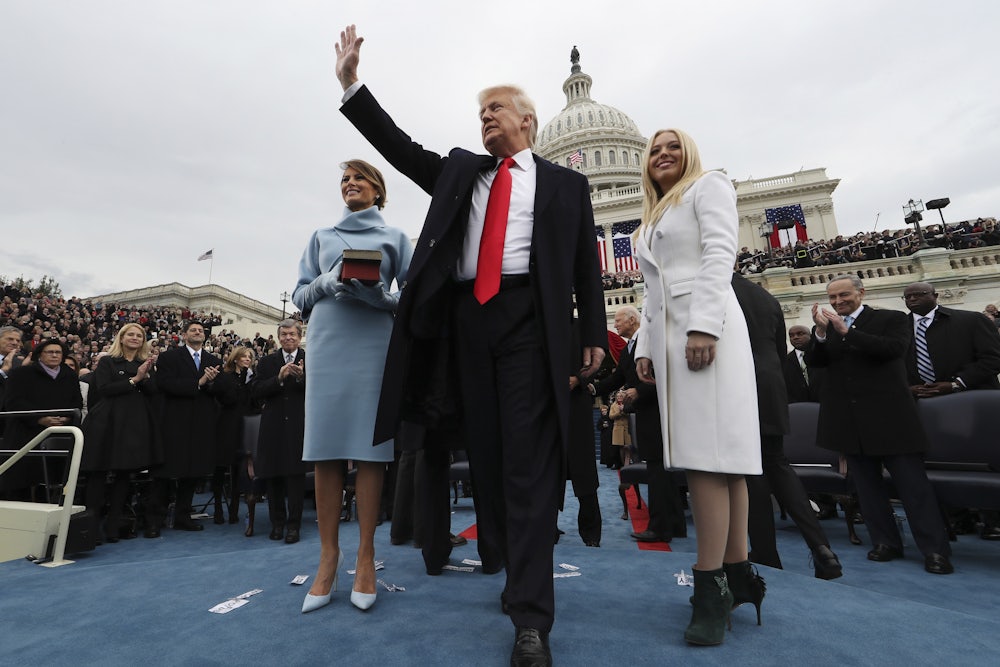A traditional inaugural address is in many ways designed to disappoint a new president’s most ardent supporters. Those supporters want to relish a victory over opponents; presidents want to burnish political capital by broadening their appeal.
President Donald Trump inverted that formula on Friday, when he delivered remarks to the “tens of millions” of people “at the center” of his “historic movement.”
In almost literal terms, Trump’s first words as president were written for the smaller half of the country that sent him to the White House.
And because his campaign was a manifestation of backlash and the politics of revenge, the speech was openly painted with dark hues. With each passing public comment since November, Trump has affirmed that he will govern in the spirit of that campaign. His first inaugural kept with that spirit in every measure.
“For too long, a small group in our nation’s capital has reaped the rewards of government, while the people have born the cost; Washington flourished, but the people did not share in its wealth,” Trump bellowed. “January 20th, 2017, will be remembered as the day the people became the rulers of this nation again.”
Trump’s comments were a nearly explicit insult to the exiting administration and former President Barack Obama, who sat feet away.
“We are grateful to President Obama and First Lady Michelle Obama for their gracious aid throughout this transition,” Trump said. “Today’s ceremony, however, has very special meaning because today, we are not merely transferring power from one administration to another or from one party to another, but we are transferring power from Washington, D.C. and giving it back to you.”
Emphasis added.
This pattern of prefacing tribal pronouncements with palliative language ran through the entirety of his remarks.
“We will seek friendship and goodwill with the nations of the world, but we do so with the understanding that it is the right of all nations to put their own interests first,” he said.
Eight years ago, Obama told the Muslim world, “we seek a new way forward, based on mutual interest and mutual respect.” On Friday, Trump promised to “unite the civilized world against radical Islamic terrorism.”
Obama began his presidency in the midst of a collapsing economy, but he nevertheless “reaffirm[ed] the greatness of our nation.” Taking the oath of office in the midst of an economy near full employment and historically low crime, Trump spoke of “rusted out factories scattered like tombstones across the landscape of our nation,” and “crime and the gangs and the drugs that have stolen too many lives and robbed our country of so much unrealized potential.”
“This American carnage stops right here and stops right now,” he added.
If the traditional inaugural address doesn’t exactly reflect the passions of a president’s base, it is also often too optimistic, because transitions between parties often reflect broader shifts in the underlying economy or political culture.
Trump inverted this tendency, too. Rather than use false optimism to temper broad strife, he concocted false bleakness to harness the loyalty of a narrow, embittered few. That’s how he won the presidency over the will of the popular majority; and as long as he is able, it is how he’ll run the country.
